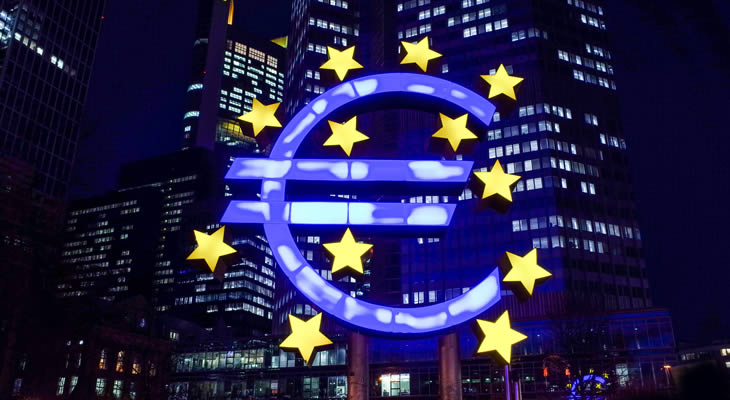The Pound Sterling to Euro (GBP/EUR) exchange rate is expected to continue to trade in the region of a seven-year high next week as investors focus on Bank of England and European Central Bank policy meeting decisions.
The start of the week promises volatility for the single currency as the latest flash inflation estimate and regional unemployment data is due for publication.
As Monday’s session begins, we can expect the Euro to hold onto Friday’s gains as the markets continue to assess the situation in Greece. The German parliament approved a bailout extension for the nation, easing concerns that Greece will run out of cash and exit the Eurozone.
The Euro will then tick higher again as economists forecast that German retail sales increased by 0.6% in January. Also of interest to Euro traders, will be the release of a number of Manufacturing Purchasing Manager Index (PMI) reports.
UK data will consist of House Prices, Mortgage approvals and a Manufacturing PMI. A fluctuation of the currency pair will then occur due to the release of Eurozone inflation data, which is likely to justify the launch of the European Central Banks €1.1 trillion quantitative easing programme.
On Tuesday, the currency pair is forecast to continue to fluctuate due the release of German inflation and Spanish unemployment change data. Also due out of the Euro area will be Producer Price Inflation (PPI) data. Sterling could find support from the release of Construction PMI data.
Midweek sees the publication of a wealth of Services and Composite PMI data out of the Eurozone and the UK. The Eurozone figures are expected to show an expansion, as is the UK report. Also due for publication in the Euro area will be the latest retail sales data.
Thursday is the main event for both currencies. Both the Bank of England (BoE) and European Central Bank (ECB) will announce their interest rate decisions. The BoE is expected to leave rates unchanged at 0.5% and the ECB is expected to leave rates unchanged at 0.05%. The ECB press conference is also expected to be the place where the bank launches its quantitative easing programme.
On Friday, the second estimate GDP Growth Rate data for the Eurozone is due for publication. Economists are forecasting that the region’s economy expanded by 0.3% on a quarterly basis in the final quarter of 2014.
Also in focus will be events in Ukraine. If the ceasefire holds then risk aversion will have less of an impact.
Friday also sees the publication of the latest UK House price data.
Uncertainty over the outcome of the UK general election is also expected to impact upon the Pound’s movements.

